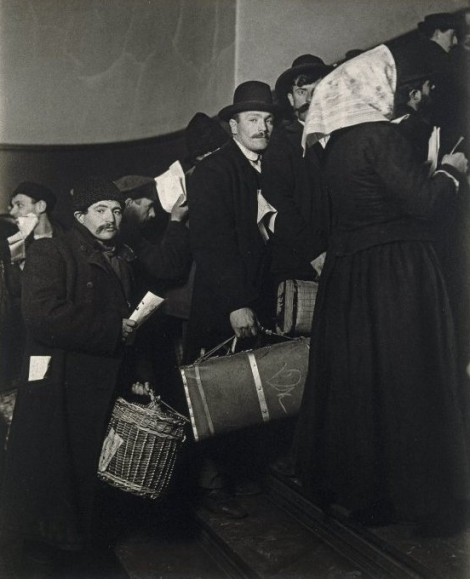In the past elections in both Europe and the US, immigration has been a central political issue. The political right has been courting votes by speaking out against these new arrivals; while this has been going on for some years now, in recent years more and more people have been listening as migrant groups threaten to take jobs and destabilize the places to which they arrive. Historically speaking, immigrants are nothing new in America; they’ve been steadily coming ever since a group of hunter-gatherers crossed the landbridge connecting Siberia and Alaska 10,000 years ago without visas, and backlash against them is old news. But across the pond, while the backlash is the same, it’s a very different phenomenon.

While most people associate immigration to the US with Ellis Island, pictured here, its history goes back much, much further
Liberals love to demonize Trump as being so hard-lined against immigrants. Yeah, he’s more vocal than other people in his party, but if you pick up a book about American history, you’ll realize it’s nothing new. In the 1750s, none other than Ben Franklin wrote with concern that German immigrants were a political and demographic threat to America. 100 years later, America’s Protestant majority didn’t think that the recent Catholic arrivals from Ireland and Germany could be trusted as American citizens if their primary allegiance was to the Pope in Rome. Different political parties have a long history of using these immigrants and the sentiments around them in a sort of tug-of-war to get votes. Since the 1850s, for example, the Democrats have had a history of welcoming foreign immigrants to this country, if only to court them as voters.
Up until World War II, Europe was supplying the rest of the world with immigrants as opposed to receiving them. Mass migration to Europe from elsewhere only kicked off in the post-war economic boom; Britain and France started the trend by attracting migrants from their far-flung colonial empires, and the Germans adopted a “Gastarbeiter” program that drew in workers from the Middle East and southern Europe. But before this, the most recent immigrants to Europe had been the Vikings, and we all know how that turned out. So it’s hardly surprising that plenty of native-born Europeans have reservations about these immigrants. Anti-immigrant sentiment in Europe has been going on for a while now, but in recent years, with an economy in the toilet and recent migrants from Syria proving to be a handful to say the least, these reservations are becoming louder. Indeed, it was one of the main points of Marine Le Pen’s National Front. And while her party lost this most recent election, her supporters aren’t going anywhere, and the debate is hardly over.
Despite these varying experiences, sentiments about immigrants are starting to sound a lot more similar on opposite sides of the pond. While immigration, both legal and illegal, had been a topic of political discussion, it’s only becoming more-so, often taking center-stage. It’s becoming bigger and harder to ignore, and needs to be handled before it turns into something worse.
